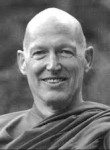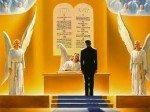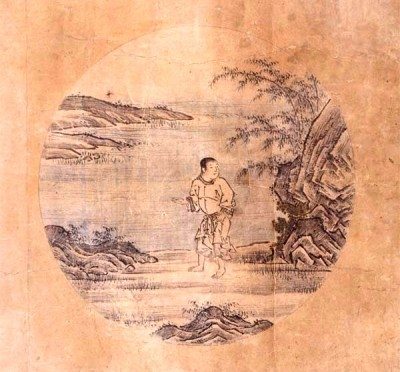Rinzai Zen teachers assign koans to students in order to arouse the mind of the student. So we apply logic in order to answer the koan, as if it were a riddle, and the teacher tells us we are getting colder, not warmer. So we switch to non-logic and start giving Zen-like answers to the… Continue reading Zen Practice: Arousing the Mind
Author: ron
Founder of The Zen Practice Foundation. University of Tennessee, B.S., Industrial Engineering (1969). University of Florida, J.D. Law, (1973). Registered patent attorney.
Dark energy and Zen
I have vented to some extent my outrage over Mindfulness Based Stress Reduction programs simply because I hold the strong opinion that such programs demote Buddhism to just another self-help philosophy. Something fit for a PBS fundraising show. But outrage and holding opinions, whether strong or soft, can originate only from an independent, unchanging self. And Zen… Continue reading Dark energy and Zen
Prostrations As A Zen Practice
I don’t recall any Buddhist sutra or sutta that mentions prostrations as a Buddhist practice. I don’t know the history of how prostrations became a part of Buddhist practice. It may even come from the repulsive practice of bowing down to a king or some other authoritarian bully who commands it. But a voluntary prostration practice having nothing to do… Continue reading Prostrations As A Zen Practice
Zen Practice And Sakkaya Ditthi
Sakkaya ditthi, the wrong view of self, is the first of the ten fetters that bind unenlightened beings. Its counterpart or antidote is Right View or Right Understanding, the first fold of the Eightfold Path. Until we arrive at samma ditthi, the correct view of self, it’s hard to loosen the other nine fetters. Who practices… Continue reading Zen Practice And Sakkaya Ditthi
Zen Emptiness Is Fullness
“All sentient beings” includes ourselves but “no sufferer is found, no doer of the deeds is there.” No person enters Nirvana and the path has no traveler. So who suffers, who does deeds, who enters Nirvana and who travels the path? Who finds the answer to these questions? When the Buddha announced the doctrine of… Continue reading Zen Emptiness Is Fullness
Zen Practice And Judgement
The famous Bible (Matthew) verse: “Judge not that ye be not judged” has two (2) meanings, I think. The obvious, mundane meaning is that the law of karma (the law of cause and effect) will operate and we will be judged by others if we first judge them. The second, deeper meaning is that the very… Continue reading Zen Practice And Judgement
Empty the cup, Practice Zen
A learned professor once sought out Japanese Zen master Nan-In. He told the master that he was well-read on Zen matters and did not need introductory lessons. He just wanted advanced instruction as to what should be done to attain enlightenment. The master offered the visitor a cup of tea and began pouring tea… Continue reading Empty the cup, Practice Zen
The Zen Bell Tolls For No One
If there is no independent self, what is there? Buddhism teaches that nothing exists independently of anything else. Everything we see, hear, smell, taste or touch is connected to something else. Nothing exists in a vacuum. John Donne’s Meditation XVII, published in 1624, includes the passage made famous by Ernest Hemmingway: No man is an… Continue reading The Zen Bell Tolls For No One
Zen Practice And Enlightenment
The Ten Ox-Herding Pictures provide a framework for the How To Practice Zen program. Although they were not intended by their artist to be used as a guide, they provide a good outline for building an authentic, daily Zen practice. The pictures appeared in the twelfth century. They were based on The Sutra of the Ten… Continue reading Zen Practice And Enlightenment
Zen Master Ajahn Brahm
Venerable Ajahn Brahm does not teach the meditation techniques taught by the Zen school. As we have emphasized throughout the How To Practice Zen website, the term “Zen” means meditation and we share the teachings of all Buddhist schools without limitation to the Zen school. It is called the Zen school because it emphasizes meditation… Continue reading Zen Master Ajahn Brahm









